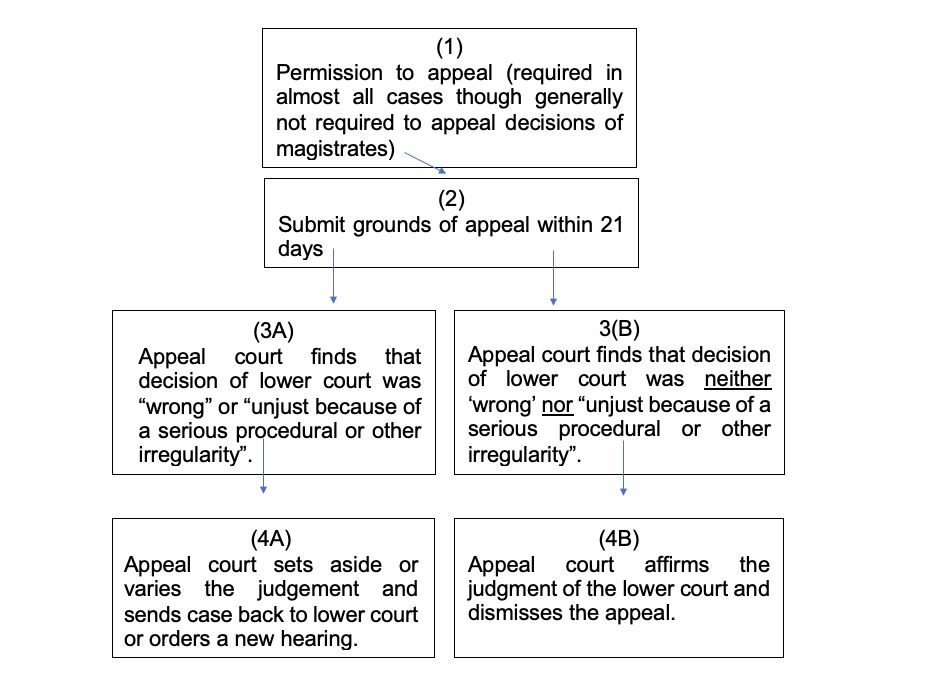Short answer
Family lawyers are often asked: “can you appeal against a decision of the Family Court?” The short answer is: “Yes, you can”.
Appeal to which judge?
There are several different routes of appeal, depending on the composition (i.e. whether magistrates, district judge, etc.) of the Family Court that first heard the matter.
The basic principle is that appeals are heard by a judge who is more senior than the one who originally heard the matter. Thus, appeals against decisions of magistrates (also known as “lay justices”) and district judges are generally heard by judges of circuit level or above. Appeals against decisions of judges of circuit level are heard by judges of High Court level or above, etc.
Permission to appeal required?
In most cases, permission to appeal against a decision of the Family Court is required. Permission is generally not required to appeal against the decision of magistrates. Permission hearings require a party to show that they have an “arguable case”.
Deadlines for appealing
Appeals against final orders must usually be submitted within 21 days of the decision. The timescales for appeals against other orders can be as short at 7 days from the date of the decision.
Grounds of appeal
Paragraph 30.12(3) of the Family Procedure Rules states that the family appeal court will allow an appeal where the decision of the lower court was (a) wrong; or (b) unjust because of a serious procedural or other irregularity. This narrow statement of grounds of appeal actually encompasses a broad range of potential deficiencies.
In GK v PR [2021] EWFC 106, the High Court set out in detail, what the grounds are for appealing a decision of the Family Court. The High Court stated the grounds to be as follows:
i) an error of law has been made;
ii) a conclusion has been made on the facts which was not open to the judge on the evidence
iii) the judge has clearly failed to give due weight to some very significant matter, or has clearly given undue weight to some matter
iv) a discretion has been exercised in a way which was outside the parameters within which reasonable disagreement is possible
v) a process has been adopted which is procedurally irregular and unfair to an extent that it renders the decision unjust
Often, clients wanting to appeal decisions of the Family Court are challenging the court’s decision based on categories (iii) or (iv) above: for example, a judge’s assessment of a child’s welfare under section 1 of the Children Act 1989; or, a judge’s assessment of what is a fair financial outcome under section 25 of the Matrimonial Causes Act 1973. It is important to note that, in such cases, the appeal court cannot simply substitute its own view of the case. As the House of Lords stated in G v G (Minors: Custody Appeal) [1985] FLR 894, the appeal court “should only interfere when they consider that the judge of first instance has not merely preferred an imperfect solution which is different from an alternative imperfect solution which the court of appeal might or would have adopted, but has exceeded the generous ambit within which a reasonable disagreement is possible”. To put it simply: the appeal court gives the lower court some leeway.
New evidence on appeal?
The appeal court will generally not hear evidence that was not before the lower court, unless it (the appeal court) has specifically permitted this.
What happens at the end?
The appeal court has the power to affirm, set aside, or vary, any order made or judgment given by the lower court; refer any application or issue for determination by the lower court; or order a new hearing.
Summary of procedure:

How can a family law barrister help?
A family law barrister can help you with the Family Court appeal process. It is important to note, however, that the barrister’s first task will be to identify whether there are proper grounds for appeal. As the section above sets out, identifying grounds is a technical process that needs careful consideration.
Clients who approach a barrister looking for help with an appeal have usually not worked with that barrister before. The barrister is therefore likely to want to analyse the case in detail before they can advise on whether there are proper grounds of appeal. For these reasons, instructing a barrister for a Family Court appeal typically involves the following sequence:
- The client receives an adverse decision in the Family Court
- The client approaches a direct access family barrister
- The barrister asks the client for a copy of all relevant documents from the family court hearing, including:
- hearing bundle
- position statements
- copy of final order
- (if available) transcript of hearing
- The barrister quotes the client a fee for reading the documents; analysing the case; and, advising on whether there are proper grounds of appeal
- If the advice in 4) above is favourable, then the barrister can quote a further fee to progress and help the client with:
- drafting grounds of appeal
- drafting the appeal skeleton argument
- advising on procedural issues, e.g., what documents need to be collated and submitted to the appeal court
All of the above usually needs to be done in a very short timescale as the deadlines for appealing range from 7 to 21 days of the decision, as set out above.
I received a favourable decision from the Family Court. The opposing party is appealing. Can a family barrister help defend an appeal?
Yes. Many clients find themselves in the situation where, having received a favourable decision at a final hearing, they must deal with the uncertainty of the opposing party’s appeal. A family barrister can help defend, as well as pursue, an appeal.
About us
Demstone Chambers are specialist family law appeal barristers working in London, Milton Keynes, Birmingham, and surrounding areas. We are able to help clients looking to appeal decisions of the Family Court.
We can also help with child arrangement orders, Family Court fact-finding hearings, and Family Court financial hearings (Financial Remedy Hearings).
Contact us for help.
